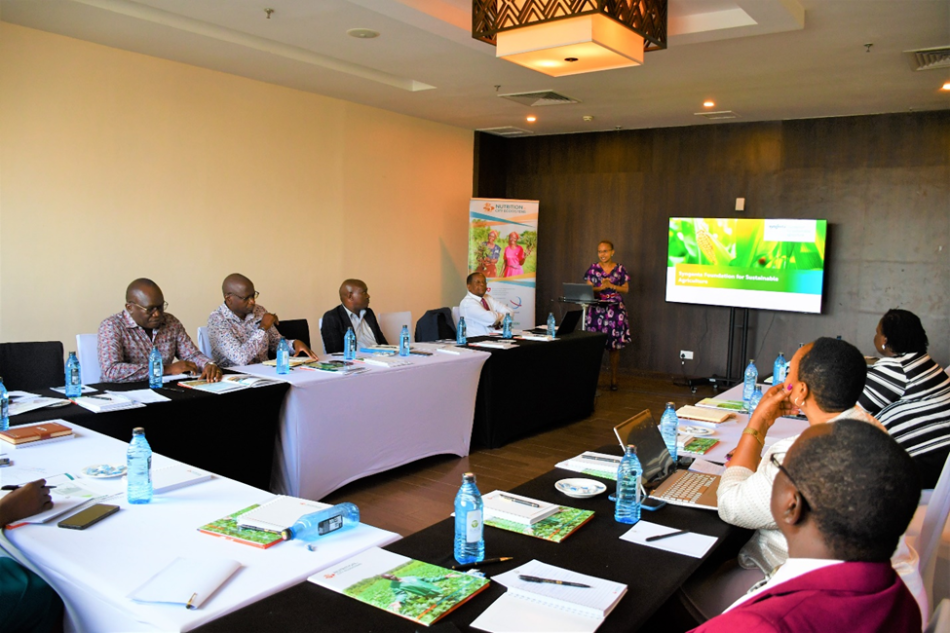The NICE Project aims to improve nutrition in urban, peri-urban, and rural areas, by shaping urban-rural food environments and informing national and local policies.
In Kenya, a high-level meeting with key policymakers was recently held at Acacia Premier Hotel in Kisumu on the 17th of May 2023. The meeting was graced by key policymakers from the Kenya national government including Busia and Bungoma cities to exchange information on policies, strategies and legislation and find opportunities to collaborate on nutrition issues.
“There is a need to ensure close collaborations of key departments of agriculture, education, health, environment and social services regarding the public sector and civil society to ensure policymakers are aligned and can inform nutrition policies and legislation.”
Lucy Kioko, the Regional Director for Syngenta Foundation East Africa

Key highlights from Policy Makers from Busia and Bungoma Cities and, National Government
We also had Ms Jane Wambugu, the Head Agri-Nutrition, Ministry of Agriculture, State Department of Crop Development who noted that she envisions very strong cooperation in carrying out the NICE Project operations as the chair of the Food and Nutrition Technical Working Group and Ministry of Health as the Secretariat. It was noted an Agri-Nutrition Implementation Strategy was in place and that it would serve as guidance for carrying out some of the project’s tasks. Similarly, the National Nutrition Action Plan, which is the overarching nutrition framework for the country, recognizes and legitimizes the need to implement nutrition-sensitive activities, hence the launch and rollout of the agri-nutrition strategy.
Dr. Janerose Ambuchi who represented Beatrice Nakholi, CECM Health and Sanitation, Busia County noted that school feeding programs have been started, and as the program is ramped up, the NICE project’s efforts will provide value. Busia County is ranked highly in the Kenya Food Composition Table and is the first county to create a biodiversity conservation policy. The county has dedicated funds to preserve and develop regional and agro-biodiversity, with a focus on designated conservation areas and further integrating native species into the curriculum.
Our Call to Action
There is a need to leverage the Joint Agricultural Sector Steering Organization (JASSCOM) and the County Agricultural Sector Steering Committee (CASCCOM), two multi-sectoral organizations that aim to help counties boost agricultural productivity.
Young Farmers Clubs (4 K Clubs) must find creative ways to introduce farming to students as early as possible to encourage the growth of regional crops such as African leafy vegetables, cassava, sorghum, and millets. Through our support, local schools such as MOI DEB Primary School in Bungoma have been able to set up successful 4k clubs.
The Council of Governors (COG) recognized the need for cooperation between national and county-level operations to better use resources, with the agriculture sector leading the intergovernmental collaboration project.
Demand-driven agricultural output is essential to meet the needs of urban people and promote healthy eating practices. Young people and women should be involved in laying the groundwork for food systems to ensure viability and value addition.
The Kenyan government’s bottom-up strategy focuses on increased production to ensure locally produced foods meet urban market standards and live up to the standards of the urban market, NICE project is keen to collaborate on this.
